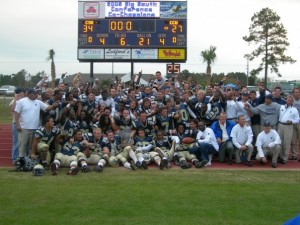Most sales people have quotas and goals that must be met.
A quota for X amount of sales and a goal of X + Y amount of sales. The quotas are often requirement, meaning if that particular sales person doesn’t make their mark for a succession of two or three periods their job is in jeopardy.
However, at the opposite end of those quotas are goals.
In most cases goals are set for each period and have an exact cutoff date: end of the month, quarter, year, etc. This practice is good on paper, but sales people see what they have to do to not get fired (quota) and what they need to do to make more money (goal) and they just reach above that mark without striving further.
Case Study
I had a friend that sold copiers for a large company and they structured her quotas and goals on a monthly basis. She was excellent at this job so when she had a goal set at the beginning of the month, she’d go out immediately and achieve her goal within 10 days of receiving her objective.
Good for her!
She got the rest of the month to do whatever she wanted to. But what if that company would have incentivised her to work the entire 30 days of the month?
I’m not criticizing her, I’m pointing out that the company has flawed bonus structures. THEY ARE ONLY GETTING 33% PRODUCTION OUT OF THIS PERSON THAT WAS EXCELLENT AT SELLING COPIERS.
In any other industry, if a person or machine is only doing their job at 33% efficiency they are going to be replaced, quickly.
What if they could have structured her commission to continue rising each month with no cap or final goal? What if they would have structured her bonus plan to have tiers that were easily attainable and unlimited so she could continue to push herself even after small achievements had been made? What if they wouldn’t have given her any quotas or bonuses and asked to her to sell as many as she could?
Guarantee that last one would yield the highest results of all.
Too often we settle for the low-hanging fruit.
During my time playing football we went through a season that pinned our backs against the wall and we had to play every game as if it were our last.
We could “leave it all on the field” because if we didn’t win the game today, the game next week wouldn’t matter in the chase for a championship. When we realized this and we put ourselves in that “no tomorrow” mentality, we knew we couldn’t save some sales for next period, we had to get them all in this period or there wouldn’t be a next.
We needed 100% efficiency in each game, and we needed to get better at the same time. We won 5 games in a row and won a conference championship when we finally decided that “there is no tomorrow.”
Learn to finish each month, period, game, contest as if it’s our last and great things will happen.
If we’re in the position of structuring incentives for our company, don’t look to have a good plan “on paper.” Instead look to build a good plan that our sales people will respect and chase after at all levels, not just enough to keep their jobs.

